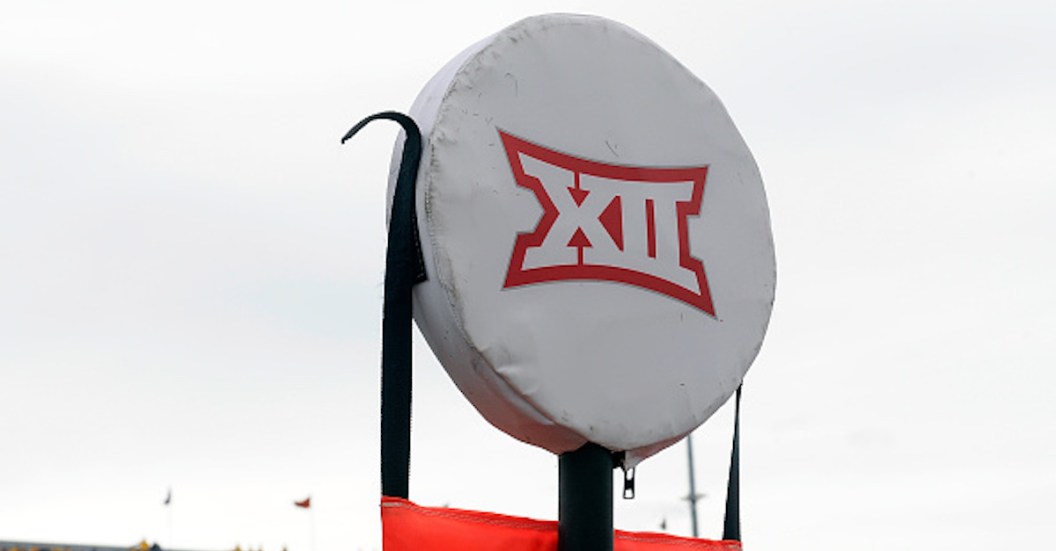Conference realignment is the ever looming cloud over college football, and that cloud just got a bit darker after a recent ESPN report, though it's admittedly still far on the horizon.
Adam Rittenberg of ESPN put together a pretty lengthy piece looking at the prospects of another round of conference realignment in 2023. He spoke with a handful of athletic directors and even a conference commissioner who said that in the here and now, expansion isn't an issue anymore. That's a huge difference from last offseason, when the Big 12 was the bell of the expansion talk ball, but talk of movement in the college sports — and specifically college football — landscape has slowed down to a crawl.
"I honestly don't think about it much, and I think our conference is thinking about it less than it ever has," American Athletic Conference commissioner Mike Aresco said. "Things have calmed down."
Aresco's thoughts on the matter are about as blunt as they come, but he wasn't alone in speaking to Rittenberg about the current expansion market.
With that said, 2023 appears to be the year that many in the know are looking ahead to, mainly because some big-time television contracts are expected to be expiring. The SEC's Tier I deal with CBS runs through the 2023-24 season and then the powerhouse league's top games (the "SEC on CBS" game) may be up for grabs. The Big Ten's TV deals with Fox and ESPN run through 2022-23 and the Pac-12's TV deal will expire along with the SEC deal after 2023-24.
Who knows what the state of live television and sports will look like then, though it's a good bet that much of what we consume will be through streaming networks. According to Aresco, though, conferences putting themselves in the best position to negotiate with a media conglomerate football-wise will still be a priority. That's what makes 2023 the key year to keep an eye on.
"Conferences have expanded primarily to take really good football schools to enhance their football footprint and strength, and also to help their [television] networks," Aresco said. "The question down the road will be whether any conferences want to add schools that they feel will strengthen them in football, whether it's because of an upcoming rights fee deal, or they feel it would strengthen their conference network.
"So '23, '24, that's what everybody thinks about."
Though television rights and the reached market may not be as important then — especially if streaming becomes the accepted way of viewing — having powerful football programs with rabid fan bases are still going to be a major factor for conferences looking to grow.
Rittenberg wrote about a few interesting options for expansion based on the football-only model.
That's why football-only members could be a bigger factor for power conferences when realignment stirs again. That could be good news for BYU, a football-only candidate for the Big 12 last year, or even Group of 5 football heavyweights like Boise State and Houston
Whether or not the "super conference" idea of four 16-team conferences will still be alive and well then is up in the air, but ultimately, it's going to come down to revenue. The SEC and Big Ten have thrived thanks to solid TV networks, but solid football has been the key to propping up those networks. The ACC boasts the defending national champion and a TV deal that runs through 2035-36, and the league is also looking to launch its own network in 2019.
According to Rittenberg, The Big 12 and Pac-12 could be the most vulnerable to realignment, and that's because they're the most vulnerable revenue-wise. The Big 12 is doing fine now, but he makes a good point: If Texas or Oklahoma left for another conference, that would be a crippling financial blow to the conference. The Pac-12 doesn't look as good in terms of overall revenue — Rittenberg pointed out that Cal's athletic department lost $21.7 million in 2016 — so what would stop one of the top schools in the conference from skipping town if another Power Five conference came calling? Yes, the Pac-12 does have proximity in its favor — can you imagine USC in the ACC? — but perhaps that won't matter as much if streaming becomes a thing and the distances between Point A and Point B are effectively shortened due to technology.
Exactly what ends up happening is anybody's guess. Expansion has been one of the major buzzwords of the past decade in college athletics, though, and it doesn't appear as if will be another 10 years before we see it pop up again.

